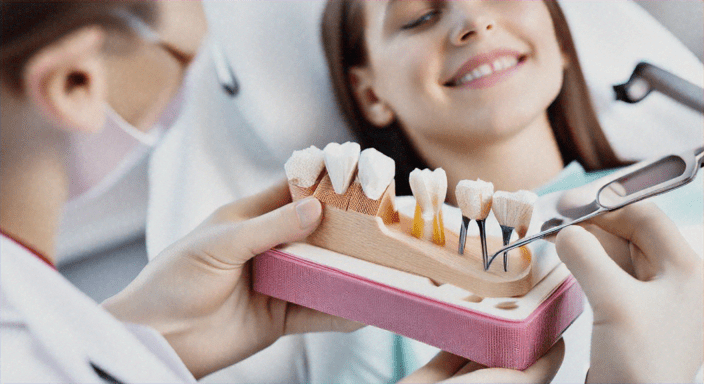A contemporary approach to replacing missing teeth, dental implants provide a blend of resilience, practicality, and visual attractiveness. Nonetheless, not all individuals are suitable candidates for this procedure. This article aims to guide you in understanding whether you qualify for dental implants.

Assessing Candidacy for Dental Implants
The potential to revolutionize your smile and improve your quality of life is immense with dental implants. However, undergoing this significant procedure necessitates a meticulous evaluation of your suitability. Four primary factors are examined when determining eligibility for implant surgery:
1. General Oral Health
-
Healthy Gums: Gum disease harbors bacteria that could jeopardize the implant site, necessitating treatment prior to placement. A thorough examination of your gums will be conducted, and pre-treatment such as scaling and planing may be recommended if periodontitis is detected.
-
Routine Dental Care: Consistent dental visits and rigorous home care practices are crucial for the enduring success of implants. Your dental records and hygiene habits will be reviewed. Addressing cavities or other dental issues beforehand helps prevent future complications.
2. Bone Density and Volume
For stability, dental implants integrate with the jawbone, requiring a meticulous assessment of your bone structure through 3D imaging. Important considerations include:
-
Adequate Jawbone: Sufficient bone is necessary to anchor the implants. Loss of bone density, a common concern among seniors, can pose a challenge.
-
Bone Grafting: In certain cases, bone grafting may be a viable option to augment the jawbone, facilitating implant placement.
3. Overall Health Considerations
While most medical conditions do not preclude the success of implants, it is essential to ensure that chronic illnesses are well-managed. A comprehensive review of your medical history will be conducted, focusing on:
-
Chronic Conditions: Conditions such as diabetes or heart disease do not automatically disqualify you, provided they are well-controlled.
-
Medications: Certain medications, particularly those affecting bone growth, can influence the success of dental implants.
4. Lifestyle Factors
-
Smoking: Smoking can impede healing and reduce the success rate of implants. It is advisable to quit smoking prior to undergoing implant surgery.
-
Oral Habits: Habits such as teeth grinding (bruxism) must be addressed, as they can exert excessive pressure on implants.
Special Considerations for Seniors
-
Age Itself Doesn’t Disqualify: The primary risks are associated with natural physiological changes and general health decline linked to aging, neither of which universally prohibits implant candidacy.
-
Healing Is Slower: Older patients experience a slower recovery and are advised to take extra precautions to support the healing process. Expectations and post-operative protocols are adjusted accordingly.
The Process of Getting Dental Implants
-
Initial Consultation: This involves a comprehensive examination, including X-rays or CT scans, to assess bone quality and density.
-
Treatment Plan: A customized plan is developed based on the individual’s specific needs and health status.
-
Surgical Procedure: Implants are surgically inserted into the jawbone and require time to integrate with the bone.
-
Restoration Phase: Once healed, artificial teeth (crowns) are attached to the implants.
Conclusion
Dental implants represent a substantial investment in your oral health and overall quality of life. Your candidacy depends on various factors, including your oral and general health, bone density, and lifestyle habits. Consulting with a dental professional is the initial step in determining if implants are suitable for you. With appropriate preparation and care, dental implants can provide a durable solution for missing teeth, enhancing both function and appearance.





